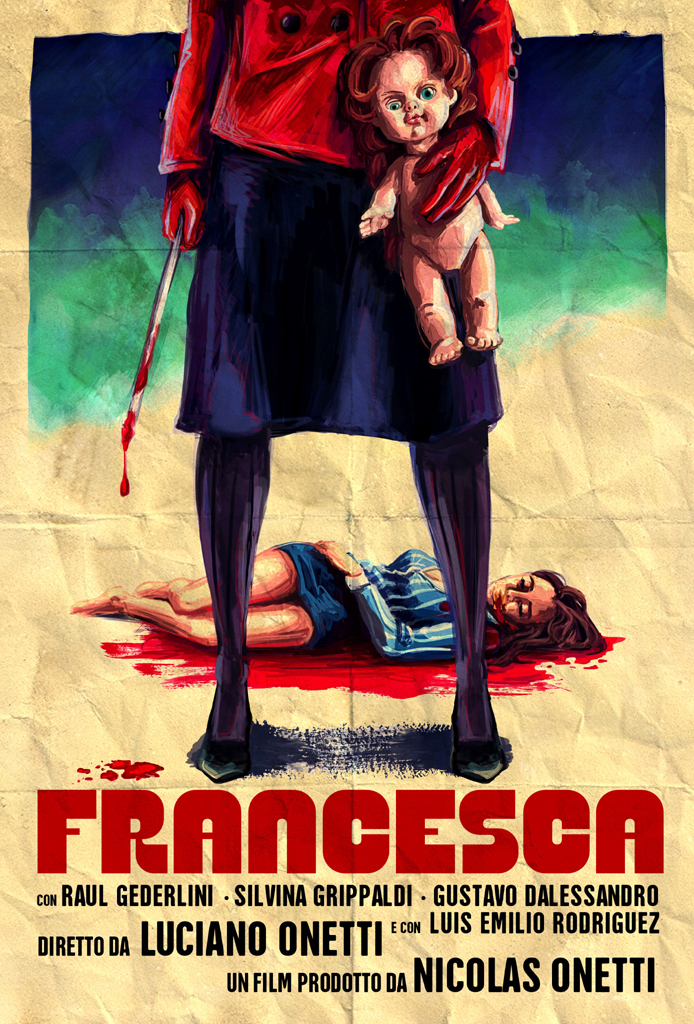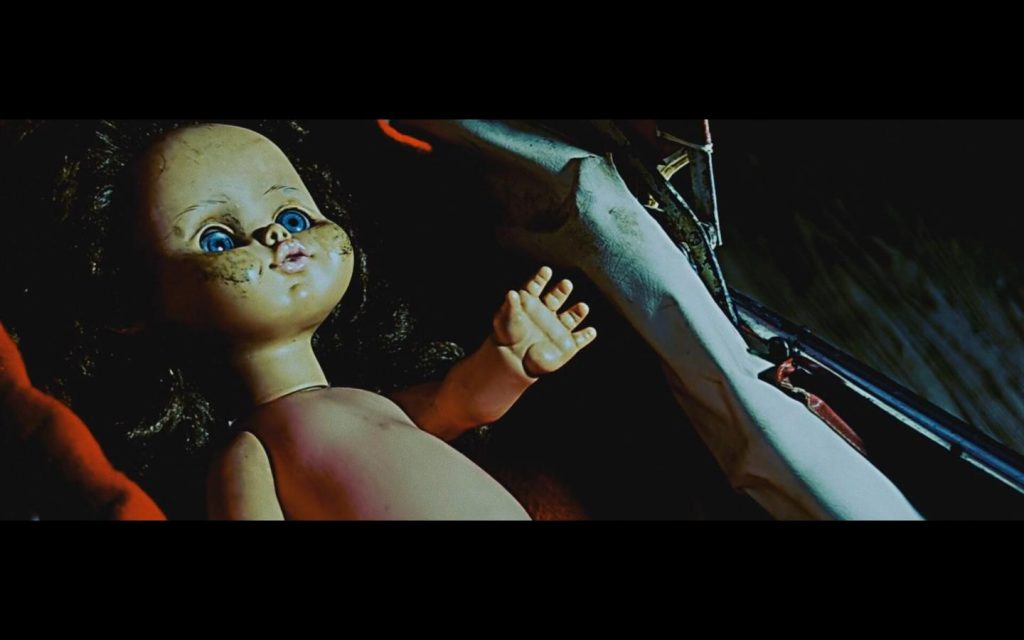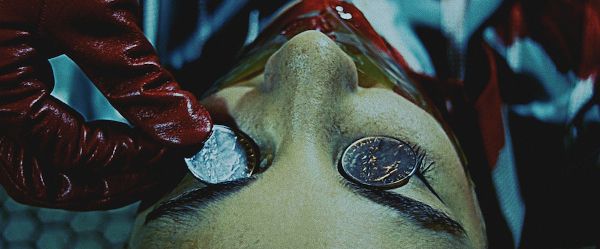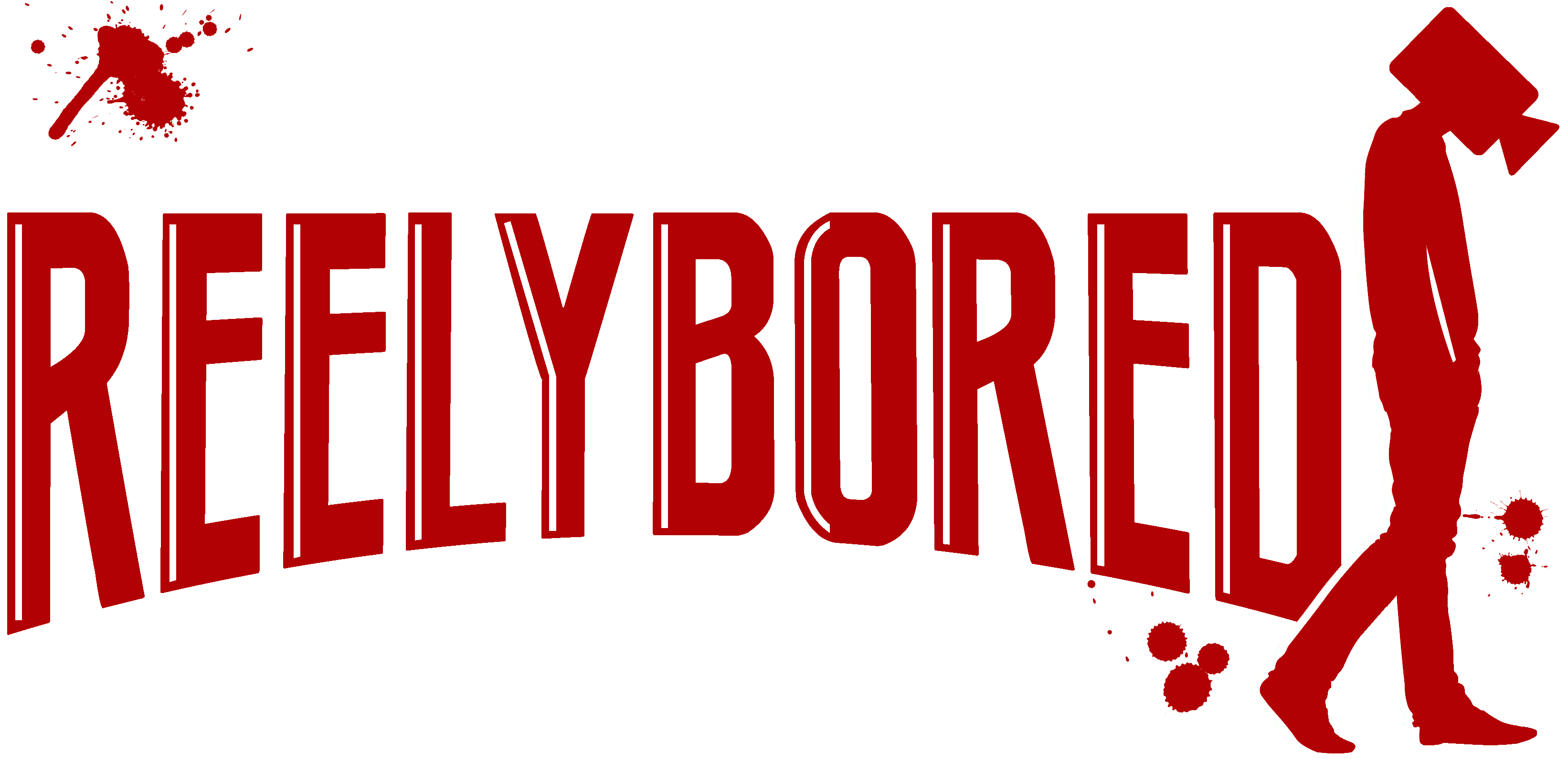
Someone is viciously murdering people, people with criminal pasts. It appears that the murders may be linked to the disappearance of a young girl 15 years previously.
Giallo Movie Review Blog: Francesca
When Francesca came out nine years ago in 2015, I thought the trailer was amazing as it appeared to be a return to “form”. Unfortunately, obtaining the film was harder than I thought. I didn’t own a region-free DVD/Blu-ray player, so ordering a copy was off the table. A few years ago, Germany put out a region-free Blu-ray of Francesca but there was no English dub, only German and the original Italian tracks. Fortunately, however, there are English subtitles. It wasn’t until recently that I finally sat down and watched Francesca. The film’s opening, reminiscent of Dario Argento’s Deep Red, immediately excited me. Different, yes, but there were some echoes and similarities to the classic, and popular, Giallo. This introductory sequence, however, is where my excitement stopped.
The good.
Francesca is a modern take on the classic Giallo. And by modern take, I mean that director Luciano Onetti made a valiant effort to mimic, or replicate, the time (the 1970s) utilizing some set design and fashion. The team made an effort to replicate the Era, despite the limited budget of this seemingly low budget endeavor. Another way Francesca tried to mimic the Giallo films of the 70s was by saturating and contrasting the color while adding grain, as if to mimic film stock, even overexposing some shots. In this way, I felt like I was watching an old VHS of the movie – sort of. The movie certainly evoked an overall feeling of an Argento film from the 1970s, where it presented us with a murderous mystery right from the start and ended with an explosive twist. Here, there are two twists, one of which I didn’t see coming, which is always a plus for this type of film. Another plus is that the movie’s runtime is under an hour and a half. The marketing for the film was also fantastic with wonderful poster art that rivals any of the classic stuff.

The bad.
While Onetti seemed to be focused on giving that 70s vibe, he seemed to miss out on a few key aspects that help to make a Giallo film a Giallo film. For starters, a key element to many giallo films is that an innocent bystander or an outsider gets woven into a web of mystery and usually becomes a target of the killer by witnessing a murder or uncovering something detrimental that threatens the identity of the killer frequently by becoming an amateur sleuth of sorts. In Francesca, the police take reign and attempt to uncover the mystery. In other words, they do their jobs in this film without the help of an outsider.

The narrative is laser-focused on the task at hand in moving the story without taking any detours to introduce any side characters building its pool of suspects. There are few likable characters nor anyone to root for. Onetti is hellbent on really trying to point us in the right direction, so much so that it is obvious who is not the killer. There is little done to divert expectations by attempting to make the audience believe who the killer might be too hard, but this tactic instead has an adverse effect. Again, there are two twist endings, one of which I did not see coming, but the other was obvious, to me at least. While the film is rather short, I do wish that it was slightly longer. Throwing a group of laypeople into the mix so that we could get a break from the police procedural aspect of the film and get a larger pool of suspects, as well, would have been nice. It felt like all the characters in the film were stuck in a small bubble and nothing else existed outside of that bubble; it was a little too claustrophobic to my liking.
I wanted to like Francesca and after the film’s conclusion; it took me a long while to conclude that I did not like the movie all that much. I felt like Onetti’s heart was in the right but tried hard, perhaps too hard, to mimic the great Giallo films of the 1970s and lost sight of what made those early films so great.
